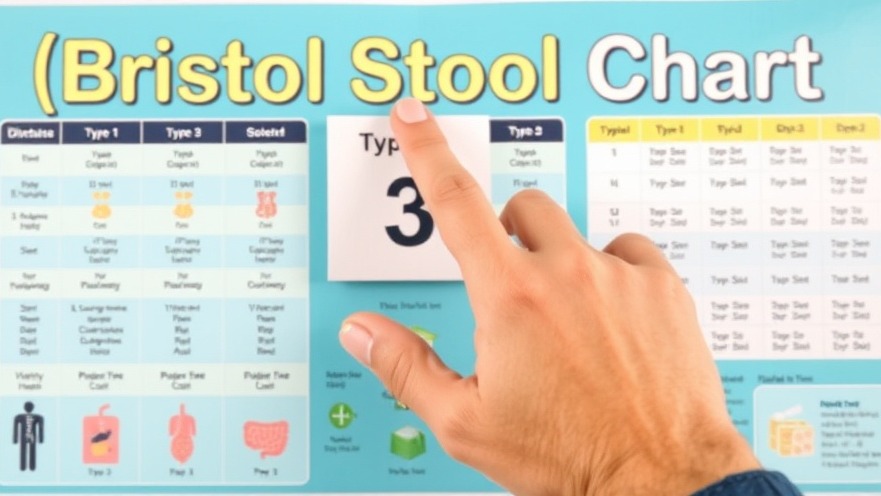
Understanding the Message of Your Stool
When it comes to our health, few discussions are more taboo yet equally enlightening than the topic of digestion—specifically, the often-overlooked signs conveyed through our bowel movements. As Dr. Burke delves into the intricacies of stool color and shape in his enlightening video, “What Your Poop Really Says About Your Health,” we uncover a wealth of knowledge that can aid in preempting health issues long before traditional tests come into play.
The video, “What Your Poop Really Says About Your Health,” focuses on the importance of understanding our stools as an early indicator of health issues, prompting a deeper analysis on our part.
What’s Normal, Anyway?
At the heart of any stool analysis is understanding what normal looks like. According to Dr. Burke, ideally, stool should be brown and sausage-shaped. This universal standard offers a baseline from which to gauge digestive health. Deviations from this norm, however, can signal potential issues further up the digestive tract. For instance, small, hard pellets can indicate constipation, whereas softer, fragmented stool may suggest a microbiome imbalance—the very ecosystem our gut relies on to function properly. This insight into the body's signals encourages a closer, more attentive relationship with our own responses to food and health.
The Colors of Health: What Stool Color Indicates
Stool hues emerge from the complexities of digestion and can speak volumes about what's happening inside. A common misconception is that the color of stool can only indicate dietary choices; however, it's also reflective of underlying health conditions. Brown is normal, but variations can hint at concerns. For instance, gray or light-colored stool may suggest liver dysfunction, while floating stools can indicate the presence of fat, signaling gallbladder issues. Meanwhile, red or black stools—although alarming—can sometimes be traced back to frequent dietary consumption of beets or berries, showing normal variations before any serious conditions are considered.
The Importance of Regularity in Digestive Health
Research suggests that regular bowel movements are key indicators of digestive health. Dr. Burke stresses the need for at least one to two bowel eliminations daily, linking this to overall wellness, including mental health aspects often overlooked in conversations about digestion. An irregular schedule could have cascading effects that touch various facets of one’s health, emphasizing the need for mindful eating and periodic fasting to help the digestive system reset.
Harmful Misconceptions and Myths Surrounding Digestive Health
It’s crucial to debunk myths regarding bowel health. For instance, many believe that infrequent bowel movements are suitable and acceptable, yet living by this notion can obscure symptoms of deeper health issues. Providing clarity and education around this subject plays a significant role in empowering individuals to take action, enhance their health literacy, and seek appropriate medical advice when necessary.
Taking Action: Steps for Better Digestive Health
Managing your digestive health involves more than just monitoring stool; it’s a multi-faceted approach inclusive of dietary considerations, stress management techniques, and lifestyle choices. Incorporating probiotics, like those from yogurt or kefir, can replenish beneficial gut bacteria. Additionally, practices such as intermittent fasting can allow the digestive system time to reset and recover. By educating ourselves on what our body is communicating, we empower ourselves towards better health choices, signaling to the community a shift toward more conscious living.
Mindfulness and Wellness: The Bigger Picture
Understanding the connection between digestion and mental wellness opens up new avenues for improved overall health. Enhanced digestion can lead to better sleep, reduced anxiety, and improved cognitive function. As such, integrating mindfulness exercises and stress relief techniques can have dual benefits: fostering a healthy gut while simultaneously easing mental burdens. Simple techniques like deep-breathing exercises or yoga before bed can promote not only digestive health but also mental well-being, addressing the unique challenges faced by older adults in sustaining both physical and cognitive health.
The Implications for Older Adults
For aging populations, maintaining digestive health becomes paramount. Regular monitoring and emphasizing good digestion can counteract many challenges faced during the decline of cognitive functions. Increased mindfulness combined with nutritional knowledge can foster stronger community ties through shared experiences and understanding.
The topic explored in Dr. Burke's video, “What Your Poop Really Says About Your Health,” serves as an essential reminder that awareness and education about our bodies' cues lead to better health practices. By integrating these insights into our daily lives, we not only focus on physical health but also weave mental wellness into the conversation.
Call to Action: Start Your Journey to Better Digestive Health
By prioritizing your digestive wellness, you pave the way for a healthier life. Explore tools like yoga for mental wellness or herbal remedies for insomnia to bolster your overall health. Let today be the day you take steps toward not just understanding your body's signals but actively responding to them for a better quality of life.
 Add Element
Add Element  Add Row
Add Row 



Write A Comment